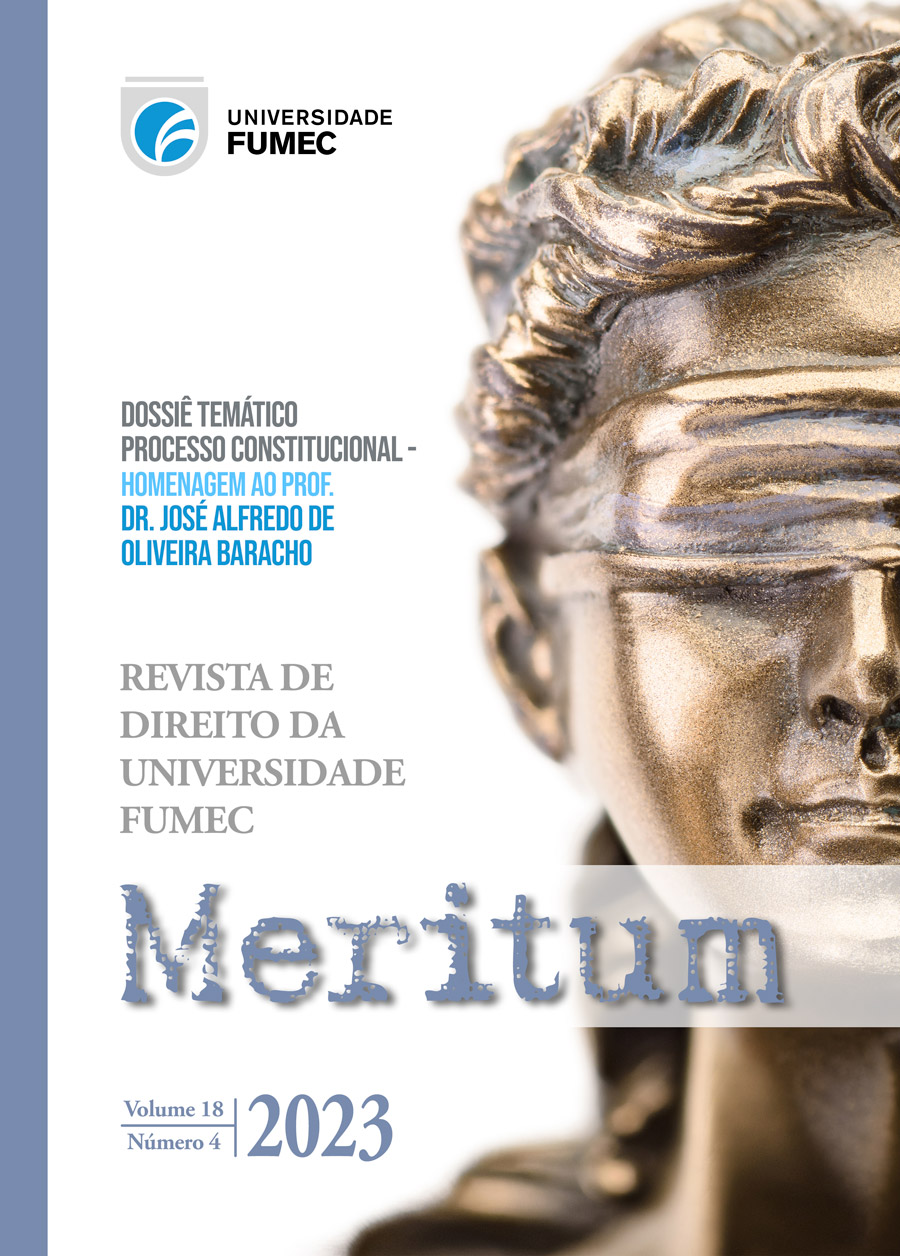THE EMERGENCY OF A CONSTITUTIONAL PROCEDURE CODE IN THE EXEGESIS OF A CONSTITUTIONAL PROCEDURAL LAW
THE NEED FOR A CODIFICATION
DOI:
https://doi.org/10.46560/meritum.v18i4.8891Abstract
The objective of this work is to study the phenomenon of technological transformation of the judiciary and the resulting procedural impacts, in light of the duty of efficiency and the new paradigm involving the delivery of jurisdictional services in the Code of Civil Procedure. The problem lies in investigating, in the face of the Judiciary crisis, the procedural impacts of the technological transformation of justice, maximally, regarding the fulfillment of the duty to search for a satisfactory performance, with adequate delivery of the jurisdictional provision. As a main contribution, it was the recognition of the Judiciary's infrastructure deficit as one of the causes of the justice crisis, which motivated the technological transformation of the Judiciary with satisfactory impacts in terms of improving efficiency in the delivery of jurisdictional provision in a society complex. In conclusio, constant innovation with the adoption of new technologies in Justice served as a kind of contribution necessary to provide efficiency and economy in the face of the high procedural burden arising from the Justice crisis. Finally, as a response to the proposed problem, innovation was evidenced that it gives the Judiciary power to face the challenges imposed by the current scenario with strategy.
Downloads
Published
Issue
Section
License
Autores que publicam nesta revista concordam com os seguintes termos:
- Autores mantém os direitos autorais e concedem à revista o direito de primeira publicação, com o trabalho simultaneamente licenciado sob a Licença Creative Commons Attribution que permite o compartilhamento do trabalho com reconhecimento da autoria e publicação inicial nesta revista;
- Autores têm autorização para assumir contratos adicionais separadamente, para distribuição não-exclusiva da versão do trabalho publicada nesta revista (ex.: publicar em repositório institucional ou como capítulo de livro), com reconhecimento de autoria e publicação inicial nesta revista;
- Autores têm permissão e são estimulados a publicar e distribuir seu trabalho online (ex.: em repositórios institucionais ou na sua página pessoal) a qualquer ponto antes ou durante o processo editorial, já que isso pode gerar alterações produtivas, bem como aumentar o impacto e a citação do trabalho publicado (Veja O Efeito do Acesso Livre).






